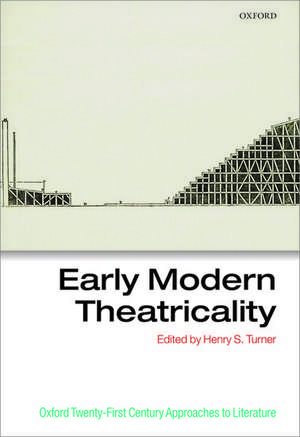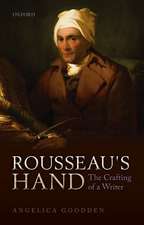Early Modern Theatricality: Oxford 21st Century Approaches to Literature
Editat de Henry S. Turneren Limba Engleză Hardback – 5 dec 2013
Preț: 904.45 lei
Preț vechi: 1294.10 lei
-30% Nou
Puncte Express: 1357
Preț estimativ în valută:
173.07€ • 180.34$ • 143.30£
173.07€ • 180.34$ • 143.30£
Carte tipărită la comandă
Livrare economică 24-29 martie
Preluare comenzi: 021 569.72.76
Specificații
ISBN-13: 9780199641352
ISBN-10: 0199641358
Pagini: 640
Ilustrații: Frontispiece and 25 black-and-white halftones
Dimensiuni: 178 x 253 x 42 mm
Greutate: 1.29 kg
Editura: OUP OXFORD
Colecția OUP Oxford
Seria Oxford 21st Century Approaches to Literature
Locul publicării:Oxford, United Kingdom
ISBN-10: 0199641358
Pagini: 640
Ilustrații: Frontispiece and 25 black-and-white halftones
Dimensiuni: 178 x 253 x 42 mm
Greutate: 1.29 kg
Editura: OUP OXFORD
Colecția OUP Oxford
Seria Oxford 21st Century Approaches to Literature
Locul publicării:Oxford, United Kingdom
Recenzii
a nuanced state-of-the-field publication, but also -- and more importantly -- as a map of where we might go next if we're willing to put the tools of theater history, performance studies, and critical theory into conversation ... Early Modern Theatricality advances a form of critical inquiry that is both historically meticulous and theoretically sophisticated.
Notă biografică
Henry S. Turner is Associate Professor of English at Rutgers University, New Brunswick. He is the author of The English Renaissance Stage: Geometry, Poetics, and the Practical Spatial Arts, 1580-1630 (Oxford, 2006), Shakespeare's Double Helix (Continuum, 2008), the editor of The Culture of Capital: Property, Cities, and Knowledge in Early Modern England (Routledge, 2002), and co-editor of the book series "Literary and Scientific Cultures of Early Modernity " at Ashgate Press. His essays have appeared in Shakespeare Quarterly, Renaissance Drama, Configurations, Isis, South Central Review, differences, and postmedieval. His work has been supported by grants from the American Council of Learned Societies, the National Humanities Center, and the National Endowment for the Humanities.

















